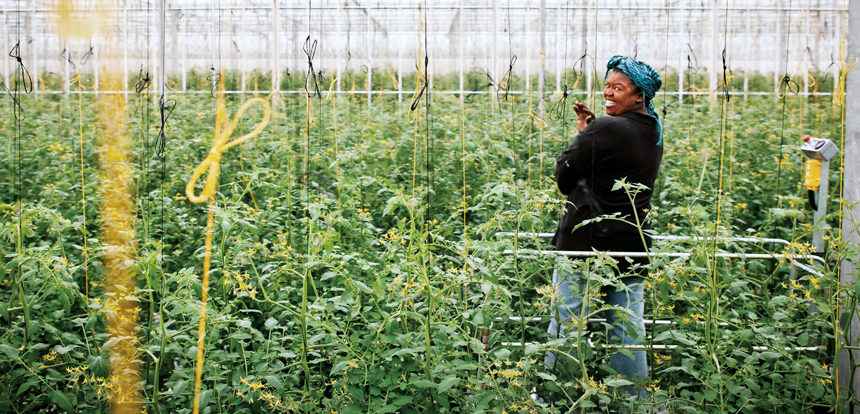Agriculture Overview

Agriculture in KwaZulu-Natal is extremely diverse and is reflected in the patterns of its topography.
Most of the world's agricultural activities may be practised here. Given the region's good and reliable rainfall, together with fertile
soils, KwaZulu-Natal's agricultural sector has become extremely productive and is known for its specialist capabilities across a number
of types of farming. KwaZulu-Natal has a total of 6,5 million hectares of land for farming purposes, of which 82% is suitable for extensive
livestock production, while 18% comprises arable land.
In order to unlock the agricultural potential of the province, concepts such as agri-villages, community estates, river valley catalytic models
and land reform support, as well as the pillars of the new agrarian transformation, set to change the provincial agricultural and rural landscape,
are being initiated by the Department of Agriculture and Rural Development.
At the heart of such new concepts is agricultural growth and a commitment to ensuring the integrated development of sustainable rural enterprises
capable of supporting further development within the province's agricultural sector.
In line with the KwaZulu-Natal Agriculture and Rural Development Strategy 2015-2020, the strategic priorities for the Provincial Growth and Development
Strategy and Provincial Growth and Development Plan inform the way forward for the province. In line with such strategy, Trade & Investment KwaZulu-Natal’s
mandate is to promote the province as a premier investment destination, which entails facilitating farming and agro- processing initiatives capable of attracting
investment to KwaZulu-Natal through both foreign direct investment and local investment across the agricultural value chain. The organisation's main goal in this
respect is to contribute towards meeting the goals of Government namely, achieving Broad-Based Black Economic Empowerment, the creation of employment opportunities
and the eradication of poverty, by securing much-needed investment in the province's agricultural sector.
Types of Agriculture
The agricultural sector is focused mainly on the following:
Crops: Sugarcane, maize;
Horticulture: Sub-tropical fruits especially pineapples, bananas, cashew nuts, potatoes, soya and other vegetables;
Livestock: Beef, sheep (mutton and wool), porkand poultry; and
Forestry: SA Pine, saligna, black wattle, eucalyptus, poplar.
The South African sugar industry is one of the world’s leading cost competitive producers of high-quality sugar and makes an important contribution to employment, particularly in rural areas, to sustainable development and to the national economy. The cane growing sector comprises 21 926 registered sugarcane growers farming in KwaZulu-Natal and Mpumalanga. Sugar is manufactured by six milling companies with 14 sugar mills operating in these cane growing regions. The industry produces an estimated average of 2.2 million tons of sugar per season. About 60% of this sugar is marketed in the Southern African Customs Union (SACU). The remainder is exported to markets in Africa, Asia and the Middle East.
The South African sugar industry makes an important contribution to the national economy, given its agricultural and industrial investments, foreign exchange earnings, its high employment, and its linkages with major suppliers, support industries and customers. Based on revenue generated through sugar sales in the SACU region as well as world market exports, the South African sugar industry generates an annual estimated average direct income of R14 billion. This constitutes R 5.1 billion in value of sugarcane production in South Africa. A large contribution to the country's economy and direct employment within the sugar industry is approximately 85 000 jobs.
There remains, however, tremendous still un-tapped potential for agricultural expansion in KwaZulu-Natal. It has been conservatively estimated that if the province's agricultural natural resources were optimally managed, the present production yield could be increased dramatically, thereby unlocking the full agricultural production potential of KwaZulu-Natal. There is also potential to boost agriculture processing activity in the province given the significant presence of manufacturing activity in the province.
The following have been identified as areas of high potential agri-business in KwaZulu-Natal:
| High value commodities such as flowers and vegetables, ranging from turnips and cucumbers to lettuce and cherry tomatoes; |
| Growing of grains (maize and soy bean); |
| Livestock; |
| Food and beverage processing and packaging; |
| Biotechnology and agricultural technology |
| Veterinary services. |








